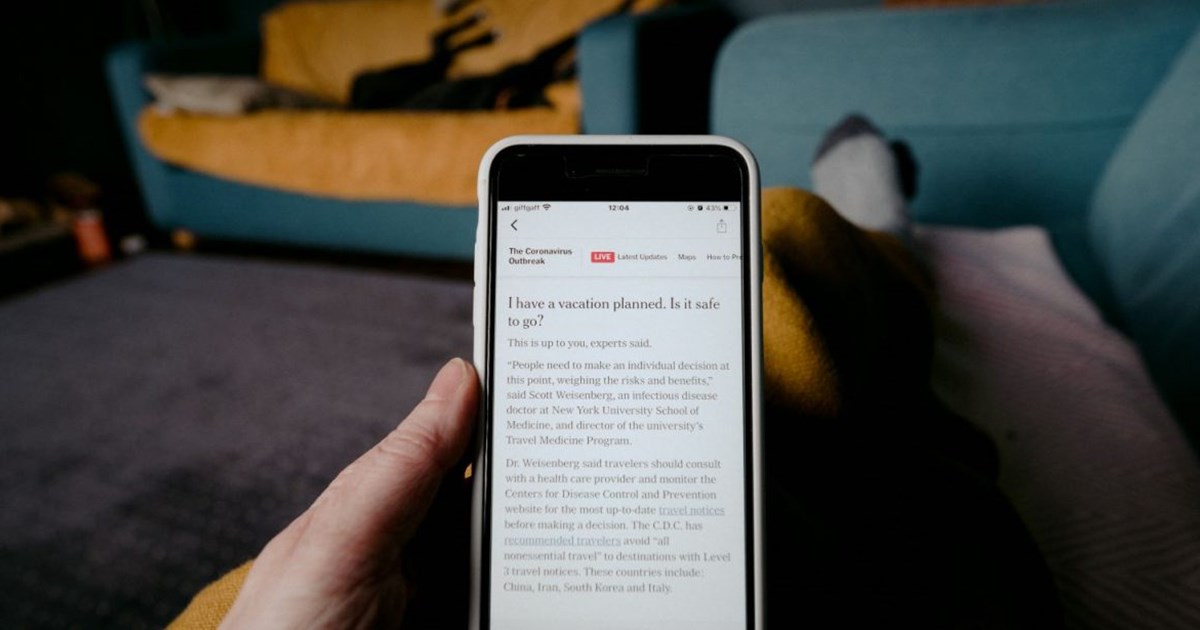Recruiters will be a crucial lifeline for jobseekers in the months ahead. Though the summer and autumn months have seen some signs of recovery in the labour market, the road ahead is still uncertain. We’ve written to the government with a six-step plan outlining what needs to happen next to lay the foundations for recovery - incentivising job creation and retention. We have ca ...
6 reasons why Temporary Staff might get you through this Pandemic
Businesses need to keep going as best they can during the disruptive times this pandemic may bring. Not every organisation can close temporarily and not every role can be performed remotely. And so it seems likely that for many organisations a crucial part of the planning may be the use of temporary staff. Here are the main reasons why hiring a temp may work for you Contr ...

11 Survival Tips for New Graduates
So, this is it. You’ve spent years working towards your degree, and all that hard graft has paid off and you are now ready to step into the real world. It’s time to take the road signs back, start eating breakfast before midday, and face the facts. The money’s run out and there are no more loans. It’s official: you need to get a job. So what now? Finding your first job as a g ...

Keeping mentally healthy as you return to work after lockdown
Dr. Jo Yarker, organisational psychologist from Affinity Health at Work and Birkbeck, University of London, has shared her recommendations for staying mentally healthy as the country begins to think about going back into workplaces.
As we start to return to work, there is a lot to think about. Lockdown has affected us all in different ways, and it is only normal to feel uncertain about what the future holds.
Many people feel confused, worried and apprehensive about going back to the workplace. Organisations will be considering a range of adjustments to the way work is done, to comply with government recommendations. These adjustments will depend on your job, and your individual circumstances.
Everyone’s situation is unique. However, as you approach your return to work, there are some general principles that will give you the best chance of getting back to work and staying mentally healthy over the coming months.
Talk and connect
It is important to keep in touch with colleagues and your line manager. You don’t need to talk about work, but a quick check-in will help you feel connected. We have all been impacted by the coronavirus in different ways. You may have been bereaved, felt overwhelmed or isolated, or been unwell. If you share this with others they will be better able to help you in the months ahead.
Plan and prepare
Think about your job and your situation. Does anything need to change to help you do your job well? If you haven’t been told what to expect, ask what provisions have been made to create a safe work environment. It can be helpful to think through what will happen on the first day back:
- How will you get to work?
- Will anything be different as you enter the building?
- Who will be there?
- Will you need to do things differently to get your job done?
Have a return-to-work conversation with your line manager
This is a chance to identify your work priorities and raise any concerns or questions that you have. Things don’t always come out right first time, so if you have something important you want to talk about, try practicing the conversation with a friend, colleague or family member. This will give you the best chance of getting your thoughts across.
Take things one step at a time
The way we all work is likely to keep changing in the coming weeks so we will need to keep adjusting. Don’t expect everything to quickly return to normal. We have a long journey ahead. We may not be able to go back to our old ways of working for some time – and if we are lucky, this could give us an opportunity to do things differently, and better. Look out for yourself, look out for others and take each day and week at a time.
Monitor and review how you are getting on
It is important to have regular check-ins with yourself (How am I coping? Could I do more to help stay mentally healthy?) and check-ins with your team and manager (How are we working? Is there anything we could do differently to work better together?). This way you can address issues as they come up and start to plan and prepare for the journey through COVID-19 together.
Finally
Everyone is finding their own path and things might not always go to plan. It is important to be kind to yourself and to be kind to others as we all find our way.

6 Tips for Line Managers in supporting their staff's wellbeing whilst working from home
Coronavirus: supporting yourself and your team We know that many of us are worrying about the current situation around coronavirus and how it might affect our lives. It's likely that we'll be working from home for longer periods of time to help keep us all safe during the coronavirus outbreak. Therefore, it's important we recognise how it may affect our mental health and ensur ...
6 Tips on how your business can adapt to survive or even thrive during these challenging times.
These are difficult times for businesses in all market sectors. The businesses which are doing well are the ones which have adapted the quickest. The key message is adapt to survive or even thrive. How? Here’s 6 tips for you: Embrace eCommerce Ecommerce is the one sector which is actually thriving during this crisis. People are spending their time online in record numbe ...

How To Support Staff With Coronavirus Anxiety
As a global society, we are facing an unprecedented time of change and uncertainty. As more cases of the coronavirus continue to be announced, we can expect to see employees experiencing high levels of anxiety around the potential impact of the virus. The fear of becoming ill – and the social and economic impact that comes with it – can take its toll on employee health. Some s ...

Finding the perfect match this Valentine's Day - are we talking dating or recruitment?
Interviewing prospective candidates for a role you’re recruiting for can be a lot like dating – 2 parties trying to figure out if they’re compatible! It’s a 2-way deal and if one party isn’t happy, it’s not going to work out! Employers have criteria when selecting candidates for a particular role, just like individuals look for certain characteristics in a partner. Let’s explo ...

5 Steps to Nailing a Salary Negotiation
So, you have showcased an impressive CV; navigated your way through the interview stages and celebrated receiving a job role. However, the hard work has only just begun as you approach the task of negotiating a salary. Discussing money can seem somewhat taboo in the UK as an air of awkwardness will inevitably ensure. The prospect of salary negotiation can fill interviewees w ...